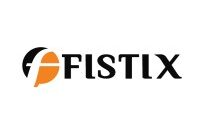
Web Development Frameworks for 2025: What You Need to Know
Web development continues to evolve at an unprecedented pace, and choosing the best web development framework has become more important than ever. As we approach 2025, selecting the right framework can impact your project’s scalability, performance, and user experience. In this guide, we’ll explore the top web development frameworks for 2025, detailing their features, benefits, and use cases to help you make the best decision for your next project.
What Makes a Great Web Development Framework?
When selecting a framework, there are several crucial factors you need to consider. These include:
- Ease of Use: Is it easy to learn and use, with clear documentation and guidance?
- Scalability: Can it handle more users and data as your project grows?
- Performance: Does it load quickly and perform well under heavy use?
- Community Support: Is there a large community offering plugins, resources, and troubleshooting?
- Development Speed: Does it help you finish your project quickly without sacrificing quality?
Now, let’s take a closer look at the top web development frameworks for 2025.
Top Web Development Frameworks for 2025
1. React
- Overview: A popular and flexible framework for building dynamic web applications.
- Why It’s Great: React’s fast performance and extensive community support make it a top choice for large projects. Moreover, its versatility enables developers to create dynamic and interactive web apps effortlessly.
- Best For: Scalable, interactive applications like e-commerce sites, dashboards, and social platforms.
2. Vue.js
- Overview: A lightweight, easy-to-learn framework that works well for small to medium-sized projects.
- Why It’s Great: Vue’s simplicity, ease of integration, and flexibility make it a great choice for customizable projects. Additionally, its gentle learning curve makes it an excellent option for developers new to web development.
- Best For: Interactive websites and applications that need to be simple yet powerful.
3. Angular
- Overview: A complete and powerful framework by Google, designed for large, complex applications.
- Why It’s Great: Angular is perfect for projects requiring robust features, especially in enterprise environments. In addition, its built-in tools and strong structure make it ideal for large teams working on long-term projects.
- Best For: Enterprise-grade applications like CRMs, admin panels, and large-scale business systems.
4. Flutter
- Overview: Flutter is Google’s open-source toolkit for building natively compiled apps from a single codebase.
- Why It’s Great: Its reactive framework and custom rendering engine enable visually rich, cross-platform apps with excellent performance.
- Best For: Cross-platform apps needing beautiful UIs and seamless performance.
5. Next.js
- Overview: Built on React, Next.js offers excellent SEO performance and fast page loads.
- Why It’s Great: Next.js optimizes your website for SEO while providing superior performance, making it ideal for content-heavy sites. Furthermore, it supports static site generation, enabling lightning-fast load times.
- Best For: Blogs, marketing pages, and e-commerce sites needing SEO optimization and fast load speeds.
6. Node.js
- Overview: A runtime environment that allows for JavaScript execution server-side.
- Why It’s Great: Node.js excels in real-time applications and APIs thanks to its event-driven, non-blocking architecture. Consequently, it’s a perfect choice for applications that require constant data updates.
- Best For: Full-stack JavaScript development, especially for real-time applications like chat apps, social networks, and APIs.
How to Choose the Right Framework
When choosing a framework, consider these key factors to guide your decision:
- Performance Needs: If your project requires fast load times or real-time updates, frameworks like Next.js or Angular are ideal. On the other hand, for lighter, more flexible apps, Vue.js or Svelte may be better options.
- Team Skills: Leverage the knowledge of your team. For instance, if your team is experienced with React, using React or Next.js will speed up development.
- Scalability: If you expect your project to grow, consider scalable frameworks like React, Angular, or Next.js.
- Community Support: Frameworks with large, active communities like React and Angular offer excellent support, tutorials, and plugins.
Emerging Trends in Web Development for 2025
AI Integration: More frameworks are integrating AI tools for enhancing user experience, including chatbots, recommendation engines, and predictive analytics. As a result, AI-powered development will become more commonplace.
- Serverless Architecture: Frameworks like Next.js are optimizing for serverless deployments, offering scalability and cost-efficiency. Moreover, serverless solutions help reduce overhead costs.
- Mobile-First Design: Responsive frameworks like Bootstrap and Material UI remain popular for mobile-friendly websites. Thus, mobile-first design is more crucial than ever in 2025.
Conclusion
Choosing the right web development framework is critical to the success of your project. Whether you prioritize performance, scalability, or simplicity, the frameworks highlighted in this guide will help you create high-performing, modern web applications in 2025.
Pick the one that aligns with your project’s needs, your team’s expertise, and your long-term goals to ensure success in the ever-evolving digital landscape.
FAQs
1.Which framework is best for beginners in 2025?
- Vue.js is often recommended for beginners due to its simple learning curve and flexibility.
2.What’s the best framework for large applications?
- Angular is a top choice for enterprise applications that require complex functionalities and scalability.
3.Can I use multiple frameworks in one project?
- Yes, but it requires careful planning to ensure smooth integration and maintain performance.
Need help with your next web development project? Contact Us!
